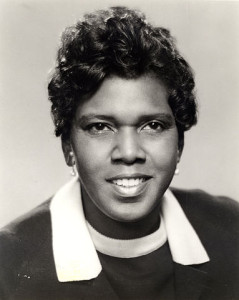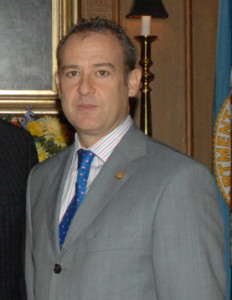One of the most persistent, pernicious myths about the U.S. Constitution is the mistaken belief that the 14th Amendment, ratified shortly after the conclusion of the Civil War, confers automatic citizenship upon anyone born within United States territory. This misimpression has led to the catastrophic wave of anchor babies, i.e. children birthed in the country by foreigners with the specific intent of wedding their parents to this nation in perpetuity, which continues to plague the United States government at a national, state, and muncipal level.
In fact, the myth of the 14th Amendment granting birthright citizenship to anchor babies is inextricably linked to a series of Supreme Court decisions, beginning with Wong Kim Ark, and culminating in the contemporary judicial precedent of Plyler vs. Doe. Although the ostensible outcome of the former was to confer citizenship upon a child born of Chinese immigrants, and the latter to invalidate a Texas statute denying public education to children who are in this country illegally, the judicial precedent established by both cases has had a much broader, more baleful impact. Namely, to establish the concept of birthright citizenship that entices so many to come to this country illegally, then to give birth on American soil.
With that historical background in mind, I suggest you visit a wonderful site developed by a Constitutional scholar who’s spent many years trying to debunk the myths surrounding this vital part of our Constitution. John Eastman is an articulate spokesman for the millions of Americans who want to see a return to more thoughtful jurisprudence regarding the issue of birthright citizenship, and while political opportunists-such as Lindsay “Amnesty” Graham-try to manipulate the public by spouting nonsense about repealing the 14 Amendment, he has carefully explained how we can return this clause of the Constitution to its original intent.








I’ll bite.
The reason the 14th Amendment had to be enacted was because the United States had already experienced a situation where there was no birthright citizenship. That situation was called slavery.
The purpose of the 14th Amendment is to avoid the creation of a permanent underclass in this country that would have no ability to exercise their freedom. Over time, this permanent underclass would depress wages, depress rights, and drag everyone else’s wages and freedoms down the drain as well.
That understanding is a big reason why so many Northerners willingly died during the Civil War to give freedom to a certain group of people, despite the fact that hardly any Northerners in the 1860s considered that group of people to be their true equals.
The 14th Amendment, as finally written into the Constitution, has nothing to do with immigration. I don’t know how John Eastman (and he is not the only one) can say that the Constitution is really about the things that got voted down during debate. I don’t know how so many people (not necessarily this particular post, but certainly great swatches of the Tea Party movement, purported spokesmen for the Republican Party, and most notably the current Chief Justice of the Supreme Court) can act as if America’s story is only about what the Revolutionary founders believed (they believed all sorts of things), or how the Revolutionary founders might have reacted to events in the 21st Century. Equal attention, and perhaps greater attention has to be given to Abraham Lincoln, what happened during the Civil War, and what it continues to mean today.
Obviously I cannot prove this, but it seems to me that repealing the 14th Amendment or even implementing laws enforcing a strong guest worker program, would ultimately lead to the reintroduction of some form of slavery into the United States. That result is far worse than any immigration problem we have currently or will ever have.
“Repealing” the 14th Amendment is not necessary; adhering to its original intent is all that we need. Here’s a good overview of the history that led up to the Citizenship Clause, and it seems unlikely illegal aliens are the type of people capable of giving birth to a U.S. citizen:
“Birthright Citizenship in the United States: A Global Comparison”
Center for Immigration Studies
http://www.cis.org/birthright-citizenship
TPS is another huge loophole in immigration law exploited as a form of amnesty. I’ve written about this on the site in the past.
None Dare Call It Amnesty
Errata — Not “willingly died” obviously. No one “willingly died” during the Civil War. But “risked their lives”.
The suggestions to “repeal” the 14th Amendment are absurd, as I pointed out in post. Nothing illustrates that better than the people advocating that stance-I’m thinking primarily of Lindsay Graham.
The concept of birthright citizenship is so firmly embedded in our current judicial system that it’s acquired the status of stare decisis, and reversing decades of precedent will require a herculean effort on the part of the American public. That being said, I don’t think it is an impossible scenario, given the right judicial appointments.
Passing an amendment to end birthright citizenship would not entail repealing the 14th Amendment per se. The 12th Amendment was partially superseded by the 20th Amendment, without repealing that earlier amendment in whole, the way that the 21st Amendment repealed the 18th Amendment in whole in 1933. Popular assent to repealing birthright citizenship would probably be overwhelming. The elites and the ethnic interest groups are the two main obstacles to the popular will against birthright citizenship being enshrined in a 28th Amendment.
Guest-worker programs are a dead-end, as Germany has learned to its everlasting regret. You can’t exchange people across borders in the same manner as widgets, which is where the open-borders libertarians are mistaken. They make the assumption that trade agreements and looser immigration policies are inextricably bound together, a la the European Union, which they’re not. More mass immigration only leads to more mass immigration, not more prosperous economies.
The “guest” workers become permanent guests, even when the tasks they were paid to perform evaporate. Guest worker programs retard technological innovation, permit more immigration fraud, and are essentially another form of corporate welfare-albeit, one that the Cato Institute doesn’t seem too concerned about.
If unfettered immigration was the key to economic growth, then the American economy would be doing as well as Australia’s, or at the very least, not performing as poorly as it is.
You see, I agree with you here 100%. The issue has to be what sort of immigrants (if any) are we willing to allow into the country. Just as I believe the 14th Amendment is a false argument, I believe that this whole “immigrants are needed to do the work” thing is a false argument as well.
I’m not implying that this is the central issue, or even the most pivotal, in the immigration debate. However, it is a huge piece of the puzzle.
Do you know of any other countries where “birth tourism” is a problem?
Korean Moms Want ‘born in USA’ babies
Do you know of any countries with a recently completed, still not totally resolved, 250-year history of slavery, genocide and recent institutionalized racism? I just don’t see how that can be ignored. It’s a distinctly American problem.
The notion that “slavery, genocide and recent institutionalized racism” are a “distinctly American problem” is a distinctly anti-American myth! Take the grand tour of Latin American, and read up on its history of pre- and post-Columbian race relations….
Birth tourism WAS a problem in Ireland until the country ended it in 2005 via national referendum. Aliens were traveling to Ireland (the only EU country with automatic birthright citizenship) in order to acquire a passport into the EU.
As for guestworkers, they will never leave, especially once they start having U.S. citizen babies here. Same for the “Temporary” Protected Status (TPS) aliens.
Even if your analysis is correct, why would you want to do it? What problem are you solving? What are the statistics on birthright citizenship? Is it really that many people? What would you do with all the “non-citizens” you create? Not all of them are Mexicans. Isn’t the problem you create worse than the problem you are trying to solve?
(CNN) — One of about every 12 babies born in the United States in 2008 was the offspring of unauthorized immigrants, a Pew Hispanic Center study released Wednesday concluded.
http://www.cnn.com/2010/US/08/11/hispanic.study/index.html?hpt=T2
Up to 400,000 children are born to illegal aliens in the United States EVERY YEAR.
Remember, too, that because of existing U.S. law, the child can legalize his parents, bring in his siblings, a spouse, and any children of his own, beginning when he hits age 18.
It’s all in this report:
“Birthright Citizenship in the United States: A Global Comparison”
Center for Immigration Studies
http://www.cis.org/birthright-citizenship
Incidentally, I am aware that for all our so-called “racism” problems, the so-called “victims” continue to flood our borders – millions every year. I am not really so interested in what other countries do or do not do. I am only interested in living up to the promise offered by the U.S.A.
1. It is a huge, very costly problem. Per FAIR:
FAIR estimates there are currently more than 425,000 children born to illegal aliens each year. This figure is based on the crude birth rate of the total foreign-born population (33 births per 1000) and the size of the illegal alien population (13 million in 2008). In 1994, California paid for 74,987 deliveries to illegal alien mothers, at a total cost of $215.2 million (an average of $2,842 per delivery). Illegal alien mothers accounted for 36 percent of all Medi-Cal funded births in California that year and now count substantially more than half.
2. We’re not discussing how to address the problem of anchor babies who are currently being raised here-that’s a more complicated matter that will need to be resolved eventually-but the issue of how to stop this from happening in perpetuity. In other words, how do we stop future generations of illegal aliens from using our our country as a gigantic maternity ward?
I am against birthright citizenship, but the notion that the 14th Amendment does not apply to “anchor babies” is ludicrous. The fact that the Congress that passed it, and the state legislatures that (ostensibly) ratified it, were not thinking about “anchor babies”– because there was no illegal immigration in the United States back then– is simply beside the point. The First Amendment’s “freedom of the press” also applies to publication by technological means undreamed of in 1789– like the one that we are using here and now!
I have watched a video of Dr. Eastman making his case, which is akin to arguments that I have read elsewhere, and I find him and them wholly unconvincing. His argument is based on the contention that illegal aliens are not within the jurisdiction of the United States, but rather of foreign governments (i.e., their own respective ones). In the first place, that argument is fallacious: illegal aliens are fully within the jurisdiction of our federal (and state) government(s) while they are present in this country– which is why our jails and prisons (and other public institutions) are overflowing with them (and our public budgets are overflowing with red ink)! While here, they are beyond the jurisdiction of their own native governments, which need to follow international law and protocol in order to try to retrieve those nationals, even if they are wanted for felonies back home.
That is all quite beside the point, however, since the 14th Amendment never mentions those illegally present foreign nationals: it refers to those born in this country– e.g., illegal aliens’ American-born “anchor babies”– not to their parents (whether here legally or otherwise). Dr. Eastman’s argument about the status of the illegal-alien parents vis-a-vis the jurisdiction of the United States is simply a moot one from the git-go.
The odd thing is that, as crazy as it sounds to most of us, at this late date, it is the 14th Amendment itself, as a whole, that is of dubious Constitutionality– because of its decidedly hinky ratification process….
Just to clarify, in light of a post elsewhere, when I say that I am against birthright citizenship, I am referring only to birthright citizenship for the American-born offspring of those who are not here both legally and permanently– e.g., illegal immigrants and those here temporarily on various types of visas. I would not be in favor of a Constitutional amendment that did away with birthright citizenship per se, leaving it up to the individual states as to which babies born in them, respectively, would be eligible for United States citizenship.
One thing I didn’t read on the comments is anything about what the original authors of the 14th amendment wanted. I’ll clarify what I mean with a quote:
In 1866, Senator Jacob Howard clearly spelled out the intent of the 14th Amendment by stating:
“Every person born within the limits of the United States, and subject to their jurisdiction, is by virtue of natural law and national law a citizen of the United States.
This will not, of course, include persons born in the United States who are foreigners, aliens, who belong to the families of ambassadors or foreign ministers accredited to the Government of the United States, but will include every other class of persons.
It settles the great question of citizenship and removes all doubt as to what persons are or are not citizens of the United States. This has long been a great desideratum in the jurisprudence and legislation of this country.”
————————————–
Just google authors of the 14th amendment, the reason they added in “subject to the jurisdiction thereof” is because all babies are subjects of the native countries of their parents. For example, illegal mexican babies are mexican citizens, NOT US, because their parents are citizens of mexico.
Slaves, having been brought here against their will, were not citizens of the US and the 14th amendment was designed to grant EX-Slaves citizenship so that they would not be shipped back to their country of origin.
quote:
Post-Civil War reforms focused on injustices to African Americans. The 14th Amendment was ratified in 1868 to protect the rights of native-born Black Americans, whose rights were being denied as recently-freed slaves
http://www.14thamendment.us/birthright_citizenship/original_intent.html
Eastman makes many insightful observations about the origins of the amendment on his website.
Original Intent
I don’t think anyone is disputing that birthright citizenship, as it currently stands, is the law. However, it’s the law because of judicial precedent, not because that was the intent of the Congress that drafted the 14th Amendment, much less the framers of the Constitution. Linda Chavez has even gone so far to argue that the enshrinement of birthright citizenship, as it relates to anchor babies, is based upon English common law.
Now, even though American common law has a place in the courts, since when did the common law of England take precedence in a question of Constitutional jurisprudence?
No, Gerard, it is the law, as it currently stands, because that is the plain language of the amendment itself! The claim being argued by Dr. Eastman et al. has never been made in the federal courts, as far as I am aware, and therefore has never been adjudicated– and certainly not by the Supreme Court, which is the final arbiter of what the Constitution means. Simply taking one line spoken during Congressional debate, interpreting it as one would prefer, and concluding that that interpretation of that single line thereby represents the only legally cognizable “original intent” of that particular portion of the amendment is not how Constitutional legal analysis is done.
In the first place, one can very plausibly argue that when the senator said that the amendment “will not, of course, include persons born in the United States who are foreigners, aliens, who belong to the families of ambassadors or foreign ministers accredited to the Government of the United States, but will include every other class of persons,” that he was referring to one class of excluded people born in the United States only, not three– especially since it otherwise makes no sense to list foreigners and aliens as separate groups, since those two words have the identical meaning, in both common parlance and as a matter of law! Otherwise, the senator should have inserted an “or” after “aliens,” to show that he was not viewing them all as a single category of excluded people, but was instead listing three separate categories.
In the second place, only if and when a Constitutional issue is adjudicated, and an argument is put forward that the plain language of the Constitution should be interpreted in some alternate way from how it has always been viewed, would a court even begin to delve into its legislative history for guidance– and, even then, only if the court determined that the language was legally ambiguous. (I had a lesbian in my Employment Discrimination class in law school who argued that all legal proscriptions against such discrimination based upon “sex” should be interpreted to proscribe discrimination based on sexual behavior, rather than merely gender. In the quarter century since, I am unaware of any court that has been willing to entertain reading the word “sex” in such statutes in a way other than how it was obviously intended– i.e., as a noun, rather than as a verb!)
In the third place, the notion that the Constitution is to be interpreted based solely upon its supposed “original intent” is simply one competing theory of Constitutional interpretation. Another would be that of the so-called “living Constitution.” As a liberal document– in the old-fashioned sense of “liberal”– the Constitution was intended to be read liberally in favor of the rights of the people, whom the Founding Fathers considered to be the source of all legitimate government, and yet strictly construed against the government, whose legitimate powers stem solely from grants of authority by the people. A liberal document, in other words, is to be interpreted to fully realize its underlying purpose– in the case of the Constitution, to protect the governed from the depredations of their own government!
In the fourth place, even if one accepts, arguendo, the theory of Constitutional “strict construction based upon original intent,” the notion that that is some self-evident and easily discernible thing is itself problematic, at best. Whose intent is to be strictly construed? The drafter(s) of the language? The members who sponsored it in each house? The members who voted for it in each house? The legislators in the multitude of states who ratified it? The notion that each of those people would have had the same intent as all of those others– overall, let alone as to each clause, phrase and word chosen, passed and ratified– is a fairly ridiculous assertion for almost any substantive Constitutional issue that one may imagine, let alone for the document as a whole.
Again, as I wrote above, the notion that “anchor babies” are not subject to the jurisdiction of the United States (and of the respective states in which they are located) is nonsense. Simply claiming that they cannot be because some other country unilaterally claims them as citizens of its own is ridiculous: that country has no jurisdiction over the illegal-alien parents, let alone a child that has never been in that other country. That other country, for instance, may not tax them, may not conscript them into its military, and may not retrieve them, even to face criminal charges, without the permission of the United States government. Furthermore, an argument based on equating foreign citizenship with lack of American jurisdiction also would mean that the American-born children of permanent legal residents would not be citizens– and none of the descendants of such permanently resident non-citizens would be citizens, either, unless their own American-born “foreign” parents had been naturalized prior to the births of their offspring. In fact, those children of permanent legal residents, absent birthright citizenship, would themselves become illegal aliens upon birth!
I was not familiar with Senator Howard’s comments until I read this blog thread, but I would posit that the modern day problem that Senator Howard was anticipating was not the “anchor baby” problem, but the “birther” problem. The birther problem worried the Founders, which is why you have to be a native-born American to be President, and must have worried the authors of the 14th Amendment as well.
In modern parlance, Senator Howard’s comments were meant to insure that the 14th Amendment did NOT mean that a Saudi Prince and his wife could come over here, have a baby in New York City, have the baby spend the first 40 years of his life split between the madrasses and the harems, and come back here, as an American citizen, and run a multi-billion dollar campaign to become President.
Along with having to be “a natural born Citizen [sic]” (which does not necessarily mean being a native-born citizen, however, but merely a citizen from birth, rather than through naturalization!) and at least 35 years old upon inauguration, a president is also required by the Constitution [Article II, Section 1, paragraph 5 (including the obsolete paragraph 3, which was overridden by the 12th Amendment)] to have “been fourteen Years a Resident within the United States [sic].” So, when one of those, say, Chinese “tourist babies” becomes a centibillionaire, several decades from now, he still will need to come reside in the United States for at least fourteen years before attempting to buy the presidency, the better to serve his beloved country– fascist China!
Or in this case, Korean.